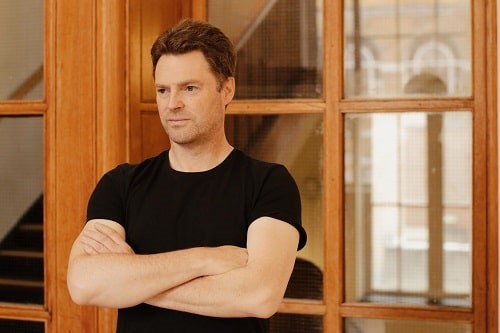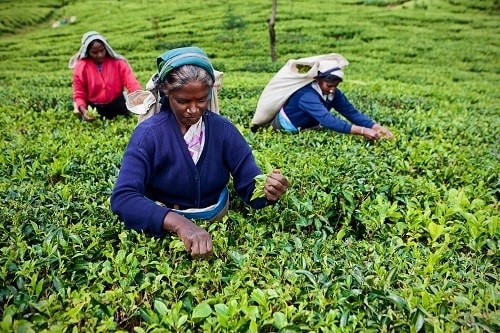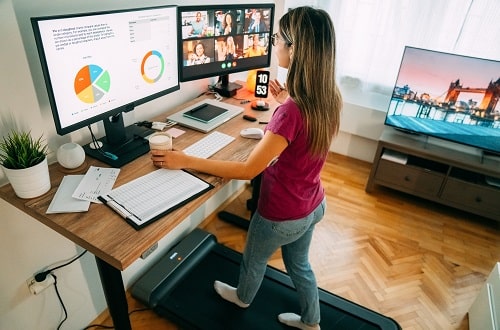Mark Maslin is Professor of Earth System Science at University College London and author of How to Save Our Planet. He is also founder of Rezatec Ltd, which works with companies to offer AI ‘big data’ solutions to tackle environmental issues.
Features
'The days of make it, sell it, throw it away, are gone'
Speaking to Belinda Liversedge in Glasgow during the most recent Climate Change summit, COP26, Mark shared his views on the process and why there’s still a lot organisations can do to save the planet and profit while they are at it, regardless of global action and commitment.
How powerful is the COP process as an engine of global co-operation and action to tackle climate change?
The COP process is limited because it is the legal international forum to discuss the reduction of emissions to try to reduce climate change. It is highly bureaucratic. The most important thing is we have the 2015 Paris agreement – the high-level statement signed by all 197 countries which stated that leaders of the world will work to keep temperatures significantly below 2 degrees and an aspirational target of only hitting 1.5 degrees.
COP26 has tried to take all the pledges and NDCs [Nationally Determined Contributions, or national climate plans highlighting climate actions] of countries and get them as closely aligned to the Paris agreement so we can get to Net zero emissions in the middle of the century. [BL: In fact, countries failed to present their plans to achieve 1.5 degrees in Glasgow. So, we wait to see what COP27 in Egypt in November will bring!]
 Professor Mark Maslin
Professor Mark Maslin
People have concluded that COP26 has been disappointing, do you agree?
What’s interesting is that people say there hasn’t been much progress, but we’ve moved from talking about making cuts to getting to the stage of the world going to Net Zero. It’s a huge shift in the minds of leaders as they know there’s a target now. It’s not just reduction, it’s about ceasing [dangerous greenhouse gas emissions]. How quickly we can do that, and how effectively, will depend on individual countries and the pressure placed on them.
COP26 has also had lots of little statements which have been really encouraging – stopping deforestation by 2030, stopping the funding of coal infrastructure, funding adaptation in Africa. So, lots of interesting small bits, all of which need to add up to a major change in policy in all countries.
Is it possible to do anything on climate change without united global action to reduce emissions? What can organisations and individuals do?
It’s very clear that to solve climate change we need government to provide some leadership, subsidies, taxation and a clear pathway to decarbonise. We need companies to step up and take responsibility for decarbonising as quick as possible and being as sustainable as possible. It’s also interesting because we know that companies that disclose their carbon and actively manage it are 67 per cent more profitable than companies that deny any change.
 Half the food in the world is produced by small farmers who work outside. Photograph: iStock
Half the food in the world is produced by small farmers who work outside. Photograph: iStock
We also need individuals to use their consumer power to choose what companies they buy stuff from. My advice for companies to reduce their emissions: firstly, work out the carbon footprint for your company and what it is for your supply chain. Not only will this save carbon, it will also save money, and there are simple wins. Look at the amount of travel – is all of it necessary? You can then look at what sort of product you produce – do you need to look at how you package it, how you plan for waste?
One of the things most companies forget is planning their product for a lifecycle analysis, from cradle to grave. Design your product so it is recyclable or plan it so people can reuse it. There will soon be regulations that force companies to do this so it’s better to be ahead of the curve.
Companies really need to start engaging with the circular economy. The days of make it, sell it, throw it away, are gone. If you want to remain profitable, you need to start engaging with it. There’s also a big warning for CEOs – young brilliant people who are the lifeblood of companies don’t want to work for companies that aren’t sustainable, aren’t ethical, or don’t actually look to their footprint.
The other thing is that companies have a workforce that have a lot of eco and climate anxiety – and therefore you can tap into those colleagues. Or choose some of your staff who are passionate about this area and get them to actively manage it. They’ll suddenly become your heroes within the company. Not only does it make the company profitable, or more sustainable, it also makes it a much nicer place to work.
What would life be like in a 2-, 3- and 4-degree scenario?
We have evidence that as temperatures rise with climate change, we’re going to lose more and more days of being able to work outside. What people don’t realise is that half the food in the world is produced by small farmers who work outside.
Each of our cities and societies is already developed for a particular temperature range. In London, we know that deaths from excess heating due to heatwaves start at about 27 degree Celsius. In Athens, those deaths don’t start until 32 degrees. So there is a different risk element because of adaptation. That’s a big ask when we look at infrastructure [the UK building stock is largely not adapted to high temperatures].
When it comes to saving the planet, is reducing our dangerous greenhouse gases, ie fighting climate change the biggest priority?
One of the most important things is that we assess human impact in its total – the human impact on the earth is much wider than just climate. As humans we have made enough concrete to cover the world in a layer at least 2mm thick – including the oceans. We have produced 300 million tonnes of plastic every year and most of this ends up in our oceans – for example, a plastic bag was found in the bottom of the Mariana trench, 7km deep in the northwest pacific (unfortunately without the brand name to point out if was Walmart or Tesco).
So, we have a huge impact – looking just at biodiversity we have already cut down half the planet’s trees and if we look at the weight of man to mammals, 30 per cent are humans and 67 per cent of the weight is all our livestock and our pets. Just three per cent of land mammals now are wild animals, something that David Attenborough shows in his films which we enjoy on a Sunday evening. So, we must be realistic that not only are we changing the climate rapidly, but we’ve also completely altered the surface of the planet. And therefore, we’ve impacted biodiversity, we are accelerating extinctions, we are changing whole eco systems.
Professor Mark Maslin is author of Climate Change: A Very Short Introduction; and How to Save Our Planet
FEATURES

Sedentary working and how to combat the ‘sitting disease’
By Gavin Bradley, Active Working on 05 April 2024
Prolonged and excessive sitting poses a major risk to our health, but the Get Britain Standing campaign and On Your Feet Britain Day on 25 April are a great way of encouraging workers to sit less and move more.

Company culture and wellbeing: a crucial link
By Bex Moorhouse, Invigorate Spaces on 05 April 2024
Investing in measures to support worker wellbeing will be ineffective unless the company culture genuinely incorporates values like teamwork, involvement, flexibility and innovation.

Office design and culture: happier and healthier staff – or the opposite?
By Guy Osmond, Osmond Ergonomics on 03 April 2024
Applying ergonomic principles to workstation set-ups and ensuring the physical environment supports neurodivergent people are just some of the ways of creating an office where everyone can thrive, but a supportive and positive organisational culture is vital too.


